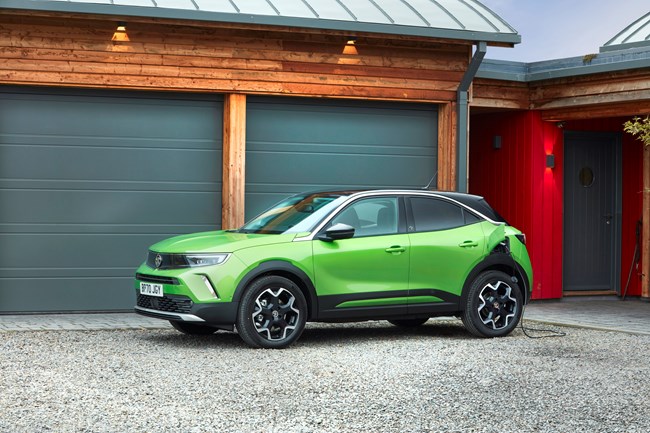We use cookies to ensure that we give you the best experience on our website. If you continue without changing your settings, we will assume that you are happy to receive all cookies on the Business Car website. However, if you would like to, you can change your cookies at any time

The start point for the best source of fleet information |
Vauxhall to go all-electric by 2028 as part of Stellantis EV strategy
Date: 08 July 2021 | Author: Sean Keywood

Carmaking giant Stellantis has announced plans for more than 70% of its cars sold in Europe to be full EVs or plug-in hybrids by 2030, including Vauxhall going all-electric by 2028.
The company, formed by the merger of PSA Group and FCA earlier this year, has made the announcement as part of a new electrification drive which will involve an investment of more than 30 billion euros between now and 2025.
Stellantis, which as well as Vauxhall owns 13 other brands including Peugeot, Citroen, and Fiat, says Its strategy involves electrified vehicles based on four new platforms developed for use across its brands.
Divided into small, medium, and large car sizes, as well as a 'frame' platform for pick-up trucks and American style large SUVs, the platforms will offer maximum driving ranges of between 300 and 500 miles.
Propulsion will be from a range of three electric drive modules, offering power outputs of between 95hp and 448hp, and compatible with front-wheel drive, rear-wheel drive, all-wheel drive and four-wheel drive.
Recharging speed capability is said to be up to an extra 20 miles of range per minute.
When asked how Stellantis plans to achieve its target of more than 70% EVs and PHEVs in Europe by 2030 - up from 14% this year, and according to Stellantis 10% ahead of projections for the overall market - the company's chief sales and marketing officer Thierry Koskas said: "We are very confident for three reasons. The first one is a demand from our customers to drive eco-friendly vehicles. When you look at all the trends in surveys, preserving the environment is the fastest growing trend over the last five years everywhere in the world for all generations.
"The second reason is range. With the improvement of batteries, also development of fast-charging infrastructure, we will be able to satisfy most customers. In the small car segment, 80% of customers will be able to enjoy an electric car without changing their habits whatsoever. If you look at the mid-size segment it's 90%.
"The third reason is the cost. What we will be able to do is, by 2026, have similar total cost of ownership to a conventional car without any government incentives."
In financial terms, Stellantis says it is targeting sustainable, double-digit adjusted operating income margins by around 2026.
Stellantis chief executive officer Carlos Tavares said: "The customer is always at the heart of Stellantis and our commitment with this 30 billion euro-plus investment plan is to offer iconic vehicles that have the performance, capability, style, comfort and electric range that fit seamlessly into their daily lives.
"The strategy focuses the right amount of investment on the right technology to reach the market at the right time, ensuring that Stellantis powers the freedom of movement in the most efficient, affordable and sustainable way.
"Our electrification journey is quite possibly the most important brick to lay as we start to reveal the future of Stellantis just six months after its birth, and now the entire company is in full execution mode to exceed every customer's expectations and accelerate our role in redefining the way the world moves.
"We have the scale, the skills, the spirit and the sustainability to achieve double-digit adjusted operating income margins, lead the industry with benchmark efficiencies and deliver electrified vehicles that ignite passion."











